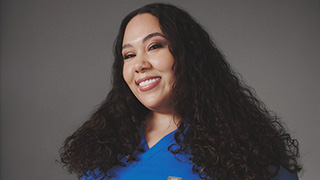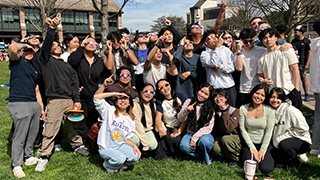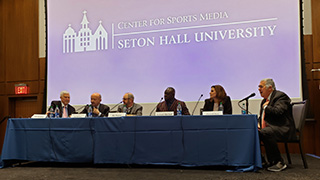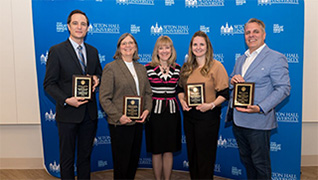Criminal Justice Professor Helps Train Judges in Colombia
Thursday, February 11, 2021
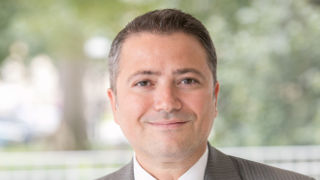
The Leadership segment sought to anchor the individual and the organization to the court's core values and principles and infused the important concepts of purpose, passion, intensity, consistency, integrity, and accountability into the daily work of the court in achieving its short and long-term goals.
The Ethics seminar focused on promoting and ensuring a commitment to the court's enduring values in accordance with 12 principles: impartiality, personal integrity, professionalism, confidentiality, decorum, the appearance of decorum, the prohibition against giving legal advice, public service, competence, anti-discrimination, non-harassment, and the proper use of technology to better facilitate efficiency in the name of procedural fairness and due process.
The Implicit Bias session discussed the importance of utilizing an Inclusion, Diversity, Equity and Awareness approach within the court. Perception and perspective exercises were used to demonstrate the real-world implications of implicit bias as well as how to incorporate five strategies to mitigate prejudices and enhance cultural competency.
The Procedural Fairness workshop explored the concept through four pillars: respect, voice, impartiality, and trust. A range of strategies were addressed to promote and improve access, diversity, equity, and public trust and confidence in Colombia's judicial system.
The final clinic on Court Technology identified methods that the courts could incorporate into their processes to adapt to the constraints of the COVID-19 pandemic. Among other key components of the course, participants were introduced to the different technological tools and innovations and how each could be applied to improve court performance and efficiency.
In 2019, Professor Fazari was engaged by the United States Agency for International Development (USAID) to help strengthen the administration of justice in the Supreme Court of the Ukraine. Focusing on caseflow management and policies and procedures designed to improve courtroom procedure, Fazari designed and delivered training to the Supreme Court. In 2020 he was reengaged as a subject matter expert by USAID for the Nove Pravosuddya Justice Sector Reform Program (New Justice) in Ukraine, focused on providing a road map to the burgeoning democracy for jury trial reform.
"Although each country and region have its own set of unique challenges, many of the issues confronting Colombia are not unlike other countries where my experience has taken me," said Fazari. "My goal is to show them the value of these universal principles that free, democratic states share and then to collaborate with them in thinking about how these fundamental practices can be applied to their court system."
The ABA's Rule Of Law Initiative is designed to strengthen the capacity of the Rodrigo Lara Bonilla Judicial Training School in addressing Colombia's dynamic justice challenges and the needs of a diverse judicial system. Specifically, the program focuses on improving the administration of judicial education, especially with respect to criminal law. The training of new judges and continuing education of experienced judges is thought to be crucial to Colombia's judicial system. In that vein, the program is designed to support host country partners in enhancing access to judicial education opportunities for Colombian judges and court personnel.
"The pandemic has had an extraordinary impact on the accessibility and efficiency in which the courts are expected to generally operate," said Fazari. "The New Jersey judiciary was better prepared than most judicial systems because of the continuity of operations planning that resulted from the Ebola virus scare in 2014, but there will be many lessons learned from having fully operationalized those procedures to counter the effects that the COVID pandemic has had on the system. As I mentioned to our colleagues in Colombia, sometimes our greatest innovations are borne out of crisis because it compels us to reengineer processes out of necessity without compromising our democratic ideals and values."
Categories: Law, Nation and World


